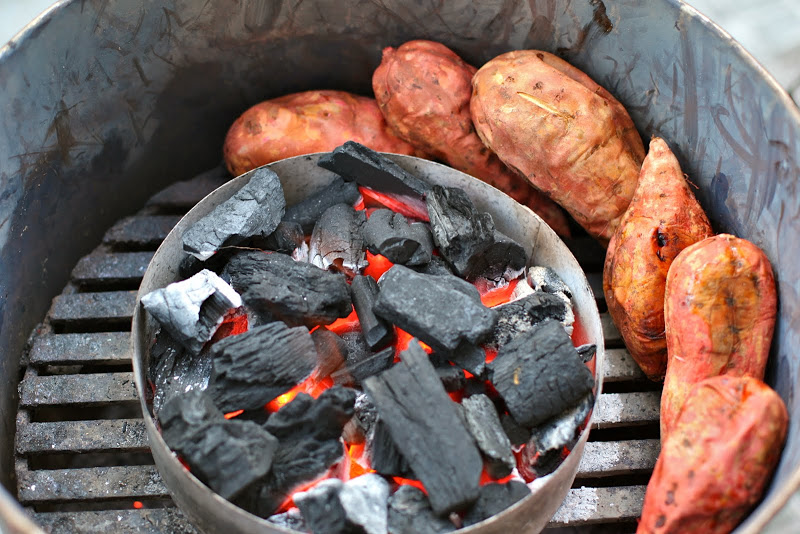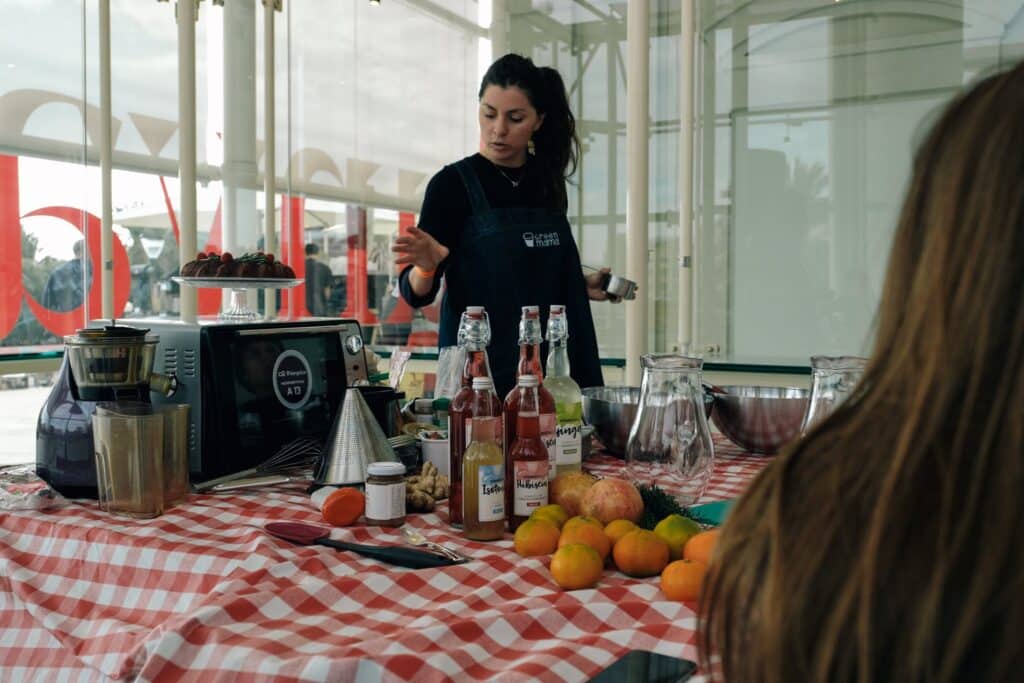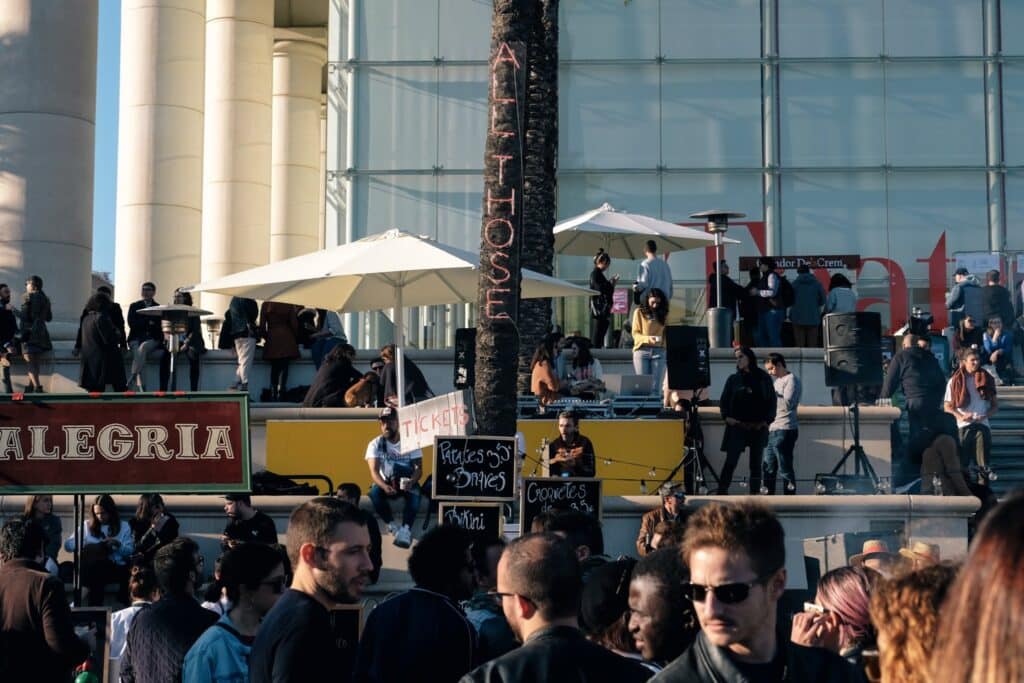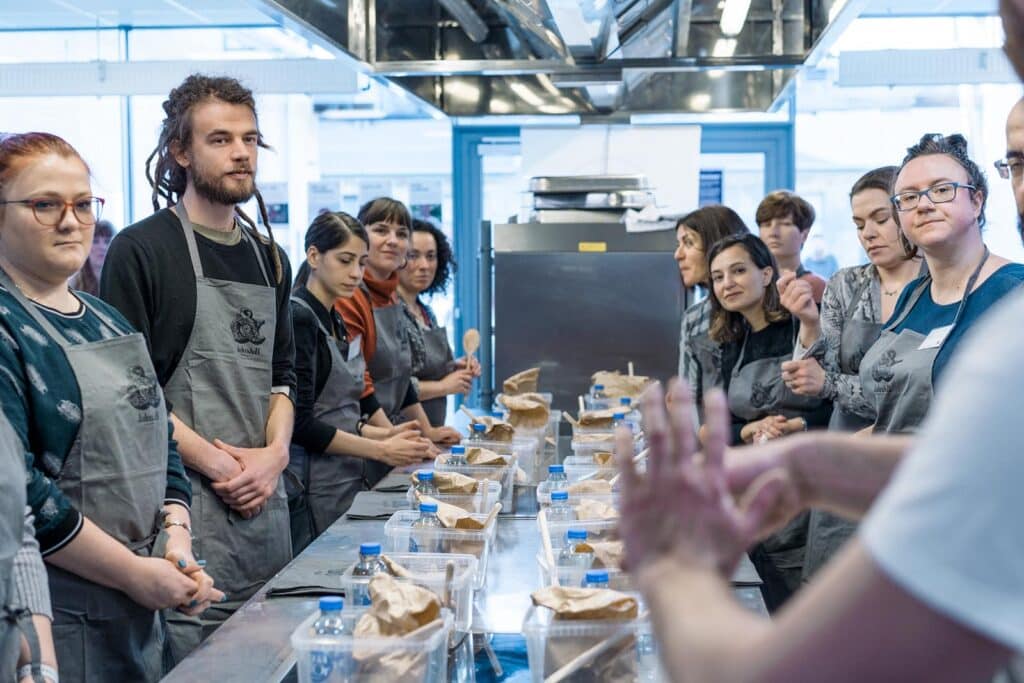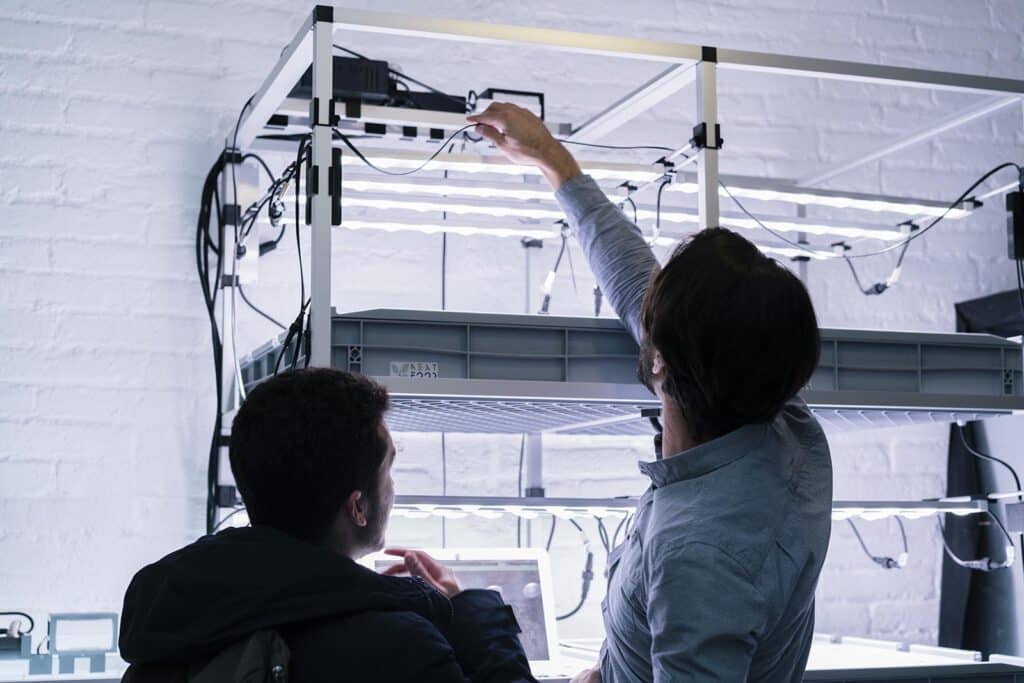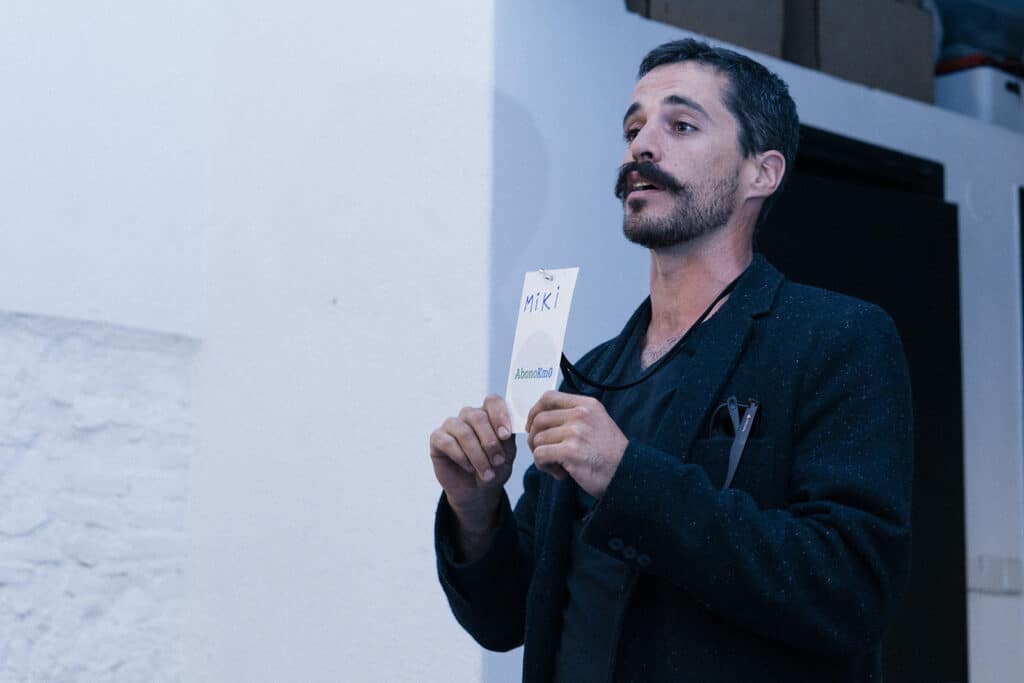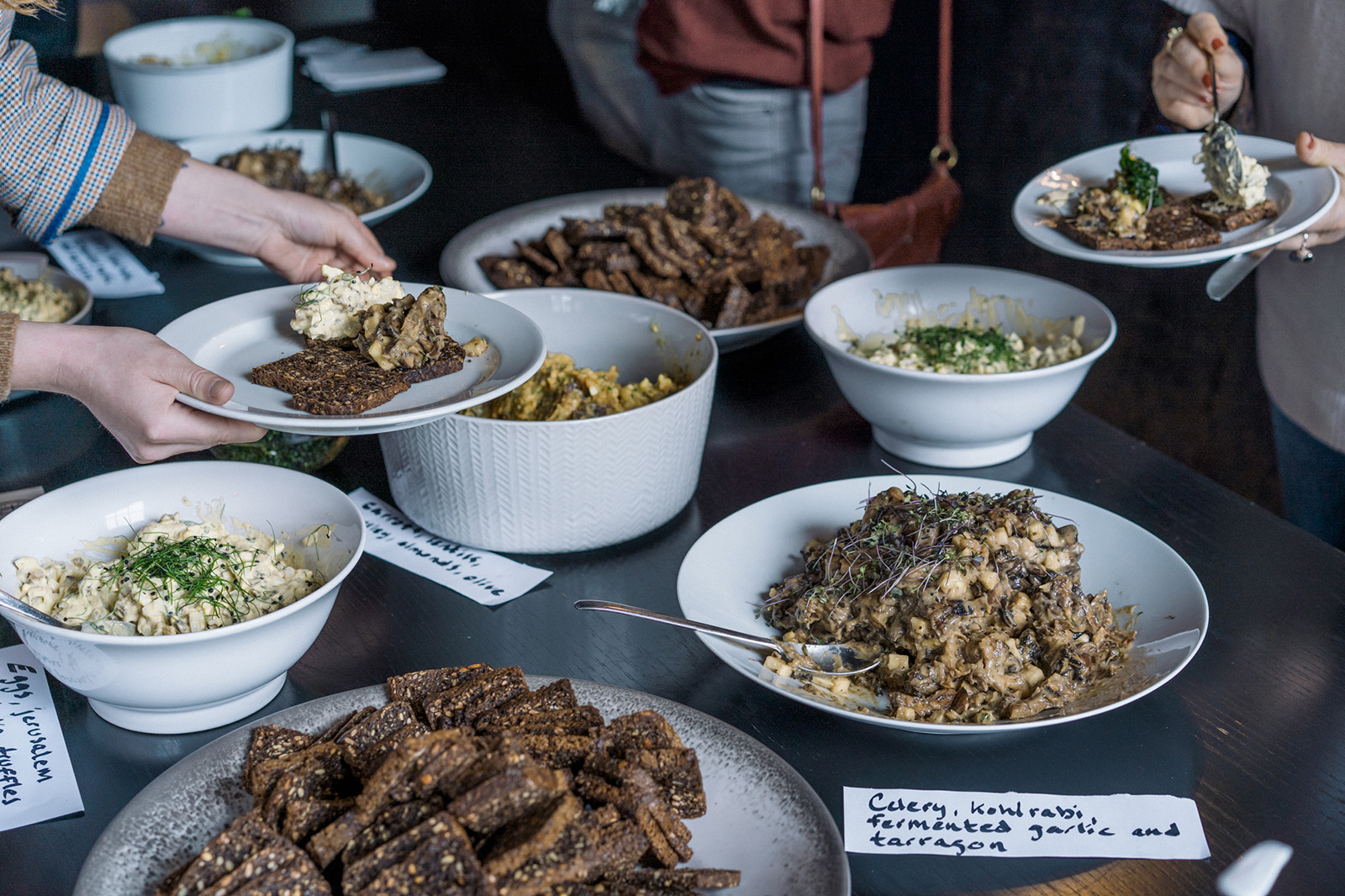
Fab Lab Barcelona’s exploration into food is central to the Fab City Vision
Introducing Food Tech 3.0
From the Winemakers Lab to ‘future food’ dinners hosted with our friends at LEKA Restaurant, we love bringing people closer to good, locally sourced food. Thanks to the FoodSHIFT 2030 project, we’re taking it one step further to bring citizen-driven innovation, local production and open-source tech into the hands of local foodies towards implementing the Fab City Vision in Barcelona.
Barcelona – the city of food
Barcelona is situated within the vast 32,108 km² area of Catalonia and has a rich history of agriculture, foraging, fishing, wine and gastronomy dating back to the Roman era. This is due to diverse, fertile lands which provide fresh produce year-round. Barcelona’s cuisine is representative of the surrounding geography, ‘mar i muntanya’ translated to English as sea and mountains, is one traditional dish. Barcelona’s cuisine is diverse thanks to Roman, French, Arabic and African influence and immigration. The accessibility to fresh fruits and vegetables combined with a strong cultural culinary identity has led to many food-focused festivals and markets being a huge focal point for tourism and revenue, a diverse set of ethical food cooperatives and consumer groups, and cultural traditions which remain strong despite conglomerate influences on the city’s foodscape.
The below image shows a tradition in Catalonia. The Castañada Festival is a tradition celebrated from the end of October throughout November to commemorate the end of the fall harvest, with the largest day of festivities coinciding with All Saint’s Day on October 31st. Common foods include castanyes (roasted chestnuts), panellets (special almond balls covered in pine nuts), moniatos (roast or baked sweet potato) sold by street vendors, Ossos de Sant cake and preserved fruit (candied or glazed fruit).
Barcelona – the city of innovation
Not only does Barcelona pride itself on its food, but it also has a notable technology sector. Across Barcelona, you can find over 110 international tech companies, from makerspaces, startups and tech communities. These communities are nestled in the nooks and crevices of gothic streets across the city and displayed in full glamour within the modern 22@ district. Barcelona hosts major conferences & international events such as Mobile World Congress, Smart City Expo and 4YFN. Most of these events are supported by Barcelona Activa, Barcelona’s Local Economic Development Agency.
click to tweetBarcelona will push for a food transition that will strengthen local sustainable economies and will improve the health of both people and the planetAlimentacio Sostenible
This technological innovation, paired with food, has created a food tech scene which produces innovative gastronomical displays and some elegant food initiatives such as Alimentaria, Foodture, and All Those food experiences. Fab Lab Barcelona will be participating in Foodture this year in the Circular Design workshop, with more curations to be announced soon. Foodture is taking place between 20-23rd October (more details to follow soon!) On top of this, Barcelona was chosen by the Milan Urban Food Policy Pact (MUFPP) to be the 2021 World Capital of Sustainable Food. Throughout 2021, Barcelona City Hall will put sustainable food at the focus of its many cultural events, from civic centre gatherings to the La Mercé festival, in addition to hosting the MUFPP Annual Gathering & Mayor’s Summit and launching a strategic 10-year food policy.
These initiatives, paired with Barcelona’s productive Mediterranean climate and existing small to large-scale food infrastructures such as Slow Food Barcelona, Barcelona Sostenible, LEKA restaurant and the ElBulli Foundation (Ferran Adria) suggest that Barcelona is working towards securing its place as a world leader in the field of sustainable food.
Connecting Fab Labs to food
As instigators of Fab City Barcelona and the global Fab City Global Initiative, it was only a matter of time, before we got serious about food at Fab Lab Barcelona. Through our latest EU funded research FoodSHIFT 2030, we’re pleased to tuck into food – focusing on combining its production and procurement with citizen tech and open innovation.
Through FoodSHIFT 2030, we want to understand how we can provide an effective space for food tech development and scaling through prototyping and knowledge sharing. This, in turn, will provide valuable insights into how the global network of Fab Labs and Fab Cities can position themselves more closely to food production, elaboration and consumption.
The FoodSHIFT 2030 Project
FoodSHIFT 2030 is a 7.5 million Euro Innovation Action project funded by the EU Horizon 2020 programme under Grant Agreement No 862716 and addressing the CE-SFS-24-2019 call on innovative and citizen-driven food system approaches in cities. FoodSHIFT 2030 aims to launch an ambitious citizen-driven transition of the European food system towards a low carbon circular future, including a shift to less meat and more plant-based diets. This will be done by establishing FoodSHIFT Accelerator Labs (FALs) for maturing, combining, upscaling and multiplying existing food system innovations across nine front-runner city-regions and FoodSHIFT Enabler Labs (FELs) in twenty-seven follower city-regions.
Food Tech 3.0
Food Tech 3.0 is the name of the Barcelona FoodSHIFT Accelerator Lab (FAL). The lab aims to act as a testbed, combining Fab Lab Barcelona, people, technology and of course, food. Food Tech 3.0 will develop and pilot existing open-source food technology. The term “technology” is intentionally broad. We see food tech as both a tangible thing, such as a neighbourhood platform for sharing food, ambient sensors deployed in urban gardens, or a smart vertical garden in a restaurant. This includes the processes which are associated with integrating the technologies into communities of practice. We think of communities of practice as groups of people who gather to form communities over a shared skill, interest or profession – in this case, food technology.
This tech will assist in managing, monitoring, socializing and improving the efficiency of local food production, elaboration, and consumption in cities. The Food Tech 3.0 lab will proactively promote and provide training on existing and new innovations in urban farming technologies; incubate, mature and scale food tech flagship local innovations; and collaborate with Fab Lab Barcelona and Fab City Global Initiative to scale innovations beyond Barcelona under the aim of creating locally productive, globally connected cities. By the project´s end in 2023, we hope to see Barcelona’s existing urban gardening and agriculture scene integrated with high and low food technologies – from neighbourhood community gardens to local indoor farms.
Previous (food) technology
Fab Lab Barcelona has many years of experience in open-source (food) technology with the European-funded projects ROMI, Making Sense and Organicity as well as incubated projects such as Aquapioneers and Winemakers Lab. For FoodSHIFT 2030, we have partnered with local vertical farmers and longtime friends Nextfood. Nextfood, lead by Rasmus Bjerngaard uses aeroponics – a method of growing plants without soil, in which the roots are suspended in the air and sprayed with a mist which contains the nutrients they require to grow. The knowledge from these projects will contribute to the development of food technology during the FoodSHIFT 2030 project and beyond. The Food Tech 3.0 lab will also collaborate and share experiences with other food-related projects including the Sabadell pilot of the EU funded FoodE Project.
With the context of a city with vibrant food culture, Fab Lab Barcelona’s research dedication to Productive Cities and the technological development of Food Tech 3.0 via FoodSHIFT 2030 EU-funded project, we hope to support and enable a strong, citizen-driven transformation of the food system. In this transformation, we aim not only to bolster local economies but to upskill citizens into sustainable professions whilst creating an exemplary food system that addresses current food inequalities, develops innovative solutions to the impacts of climate change, and creates a just transition with citizens at the very heart of the movement.
